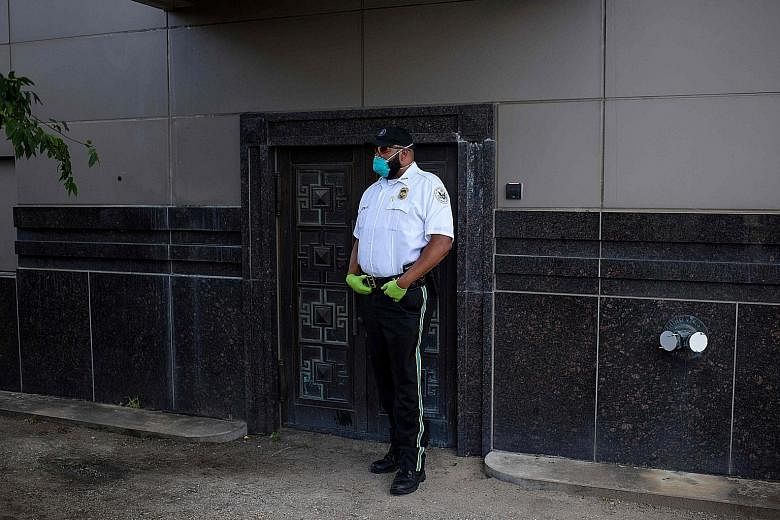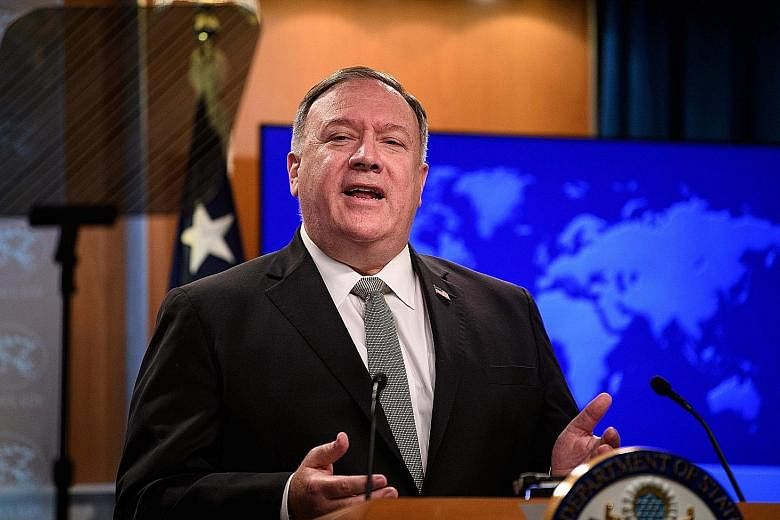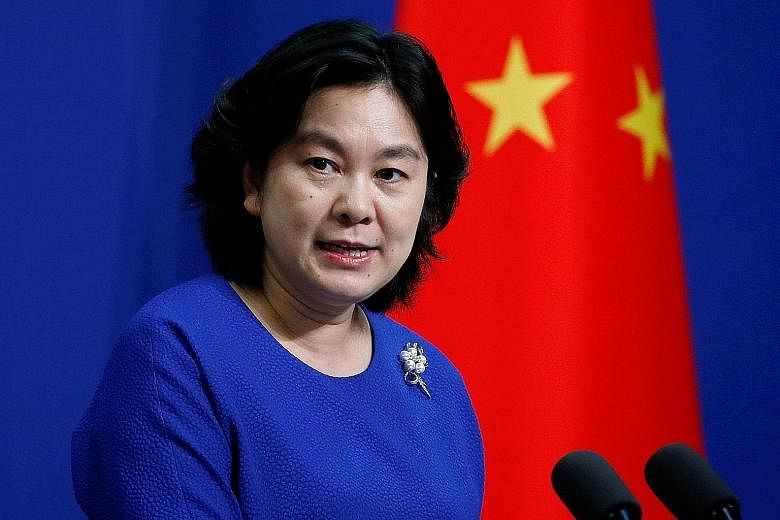China yesterday objected to further restrictions on its diplomats in the United States shortly after they were announced by US Secretary of State Mike Pompeo, saying Beijing had "always in accordance with the law facilitated US embassy and consulate personnel's normal activities in China".
China's Foreign Ministry spokesman Hua Chunying urged Washington to "immediately revoke the wrong decision and stop obstructing normal personnel exchanges between the two countries, stop disrupting Sino-US relations".
The US was violating international law and basic norms of international relations, Ms Hua said.
"This shows the anti-China forces in the United States have lost their rationality and self-confidence, and have suffered from anti-China delusions," she added. China would continue to support "normal exchanges and cooperation between all people in the two countries".
RECIPROCITY
Earlier, in Washington, Mr Pompeo, who announced the restrictions, told journalists that the US was "simply demanding reciprocity".
"Access for our diplomats in China should be reflective of the access that Chinese diplomats in the United States have and today's steps will move us substantially in that direction."
Senior Chinese diplomats will now need approval from the State Department to visit American university campuses and to meet local government officials.
Approval will also be required for cultural events with more than 50 attendees happening outside the Chinese embassy or consular posts.
The State Department last year required Chinese diplomats to notify it of any meetings with local government officials or events on university campuses - but prior approval was not required. The new rule makes prior approval necessary.
China does require American diplomats to seek approval for meetings in provinces other than where they are based.
Mr Pompeo said: "For years, the Chinese Communist Party (CCP) has imposed significant barriers on American diplomats working inside the PRC (People's Republic of China)."
American diplomats in China are subject to "a system of opaque approval processes" that limit their ability to freely interact with Chinese society, on university campuses, with the press and on social media, he added.
China has taken advantage of the US' open society for influence and information gathering activities, the US contends.
In July, the Trump administration ordered China's consulate in Houston closed and its diplomats expelled, alleging that the consulate was being used for spying.
Beijing retaliated by closing the US consulate in Chengdu.
US Undersecretary of State Keith Krach has sent a letter to the governing boards of American universities, alerting them to threats the CCP poses to academic freedom, human rights and university endowments, Mr Pompeo said.
"These threats can come in the form of illicit funding for research, intellectual property theft, intimidation of foreign students and opaque talent recruitment efforts."
Mr Pompeo also urged divestment from Chinese companies on the US Commerce Department's Entity List.
He said they were "contributing to human rights violations, military coercion and other abuses".
ELECTION ISSUE
US-China relations have this year plunged to their lowest point since diplomatic ties were established 41 years ago.
US President Donald Trump has blamed China for the Covid-19 pandemic, and Congress and his administration have moved against Chinese officials as well as companies over a range of issues.
The US has censured and banned Chinese companies and people involved in the building of infrastructure in the disputed South China Sea and has also taken action against those involved in the internment and persecution of Uighurs.
Popular apps like TikTok and WeChat have also been targeted, on the premise that they gather data on Americans.
As the US election campaign enters its last two months, China has become the top foreign policy issue, with both President Trump and his rival, former vice-president Joe Biden, competing to be tough on Beijing.
In the context of the most recent clash between India and China, Mr Pompeo said the US hoped for a peaceful resolution.
But he added: "From the Taiwan Strait, to the Himalayas, and beyond, the Chinese Communist Party is engaged in a clear and intensifying pattern of bullying its neighbours.
"That bullying is also evident in the South China Sea. Last week, the United States imposed sanctions and visa restrictions on Chinese individuals and entities responsible for the CCP's imperialism there, doing things such as unlawful energy surveillance, activities in the economic zones of our ally, the Philippines, and other countries."
ASEAN MEETINGS
Mr Pompeo's remarks came ahead of his virtual participation in the Asean ministerial meetings, which are due to take place next week between Sept 9 and 11.
These will include the East Asia Summit Foreign Ministers' Meeting and the launch of the Mekong-US Partnership with the foreign ministers of Cambodia, Laos, Myanmar, Thailand and Vietnam.
"We'll have discussions that will be wide-ranging, including on Covid-19, North Korea, the South China Sea, Hong Kong and Burma's Rakhine state," Mr Pompeo said.
"I'll also raise how the Trump administration is restoring reciprocity to the US-China relationship."



